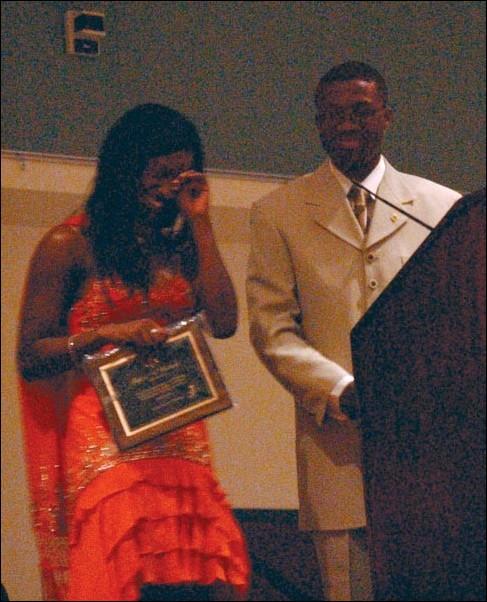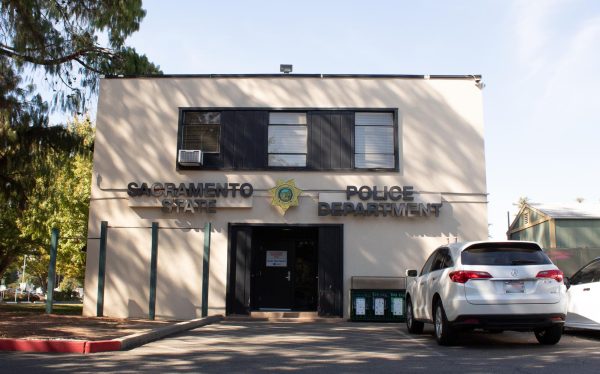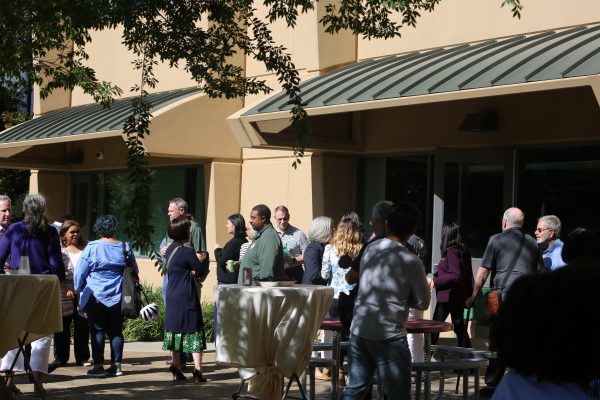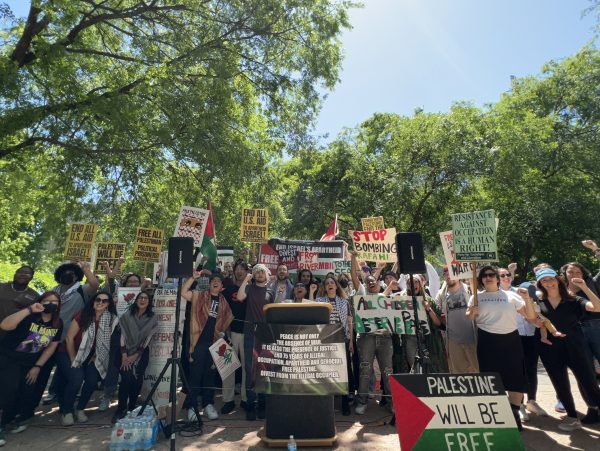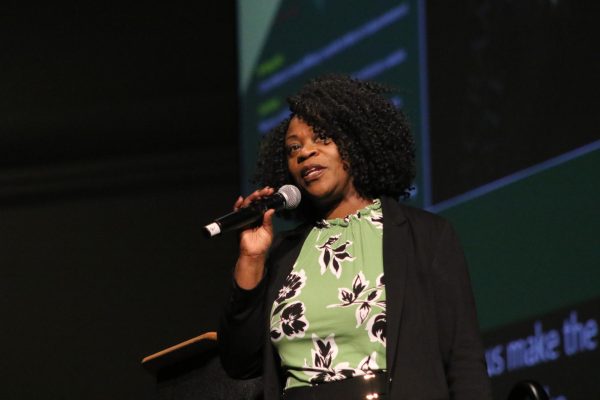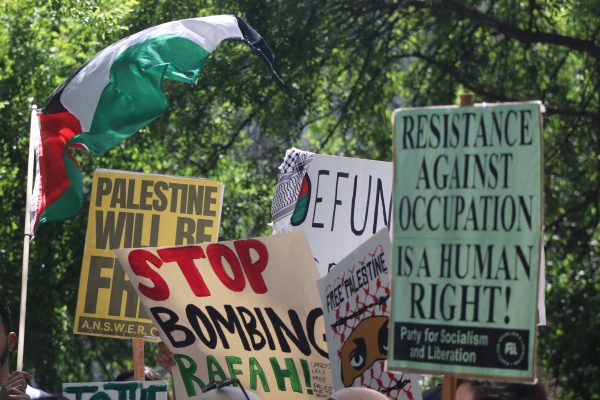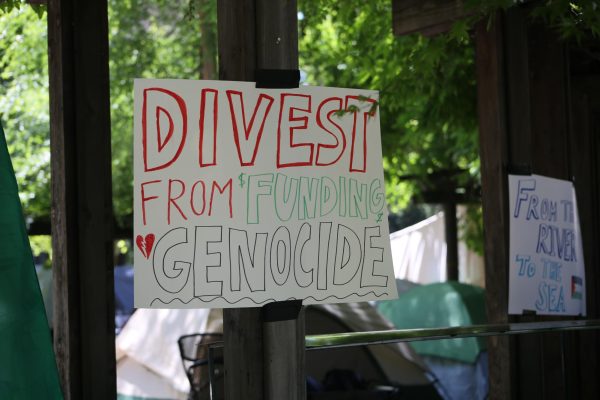Saving Sudan
Image: Saving Sudan:Abayomi Ogundairo presents senior Regina Unimuke with a plaque for her dedication to the African Students Association. Jamie Gonzalez/State Hornet:
April 21, 2005
The African Students Association held a formal charity dinner Saturday night called Nubian Allure to aid refugee women of Darfur, Sudan.
The event included an art auction and a performance by Sacramento State dance troupe SBAD or Sacramento Black Art of Dance.
Regina Unimuke, the African Students Association president, said she hoped the event would help raise awareness of the problems facing the women of Sudan, which she calls an atrocity.
The Darfur crisis began two years ago when rebels known as the Sudan Liberation Movement/Army took up arms against Sudan’s government in response to perceived economic marginalization and the government’s failure to protect villagers from attacks. The uprising by the army was followed by attacks from a second opposition group, the Justice Equality movement.
Since that time the people of Darfur have been fleeing to the bordering country of Chad to escape attacks from government militias known as the janjaweed.Amnesty International estimates more than 200,000 civilians have escaped into Chad, while 1.8 million others have sought refuge in neighboring regions of Sudan.
The United Nations estimates that 180,000 people have died from hunger and disease since the beginning of the conflict.
Hunger and disease are only one part of the problem, Unimuke said. Women are being systematically raped and killed by the janjaweed, often in front of their families or other villagers to perpetuate fear, she said.
The U.S. Department of State reported in September 2004 that the janjaweed are using rape as a weapon against non-Arab Darfurians.
“Sixteen percent of the respondents said either that they had been raped or had heard about a rape from a victim,” the report said, “One woman told the team that she had been raped repeatedly in front of her father by members of the Sudanese military and janjaweed. Afterward, her father was dismembered in front of her.”
Unimuke said stories reported by the survivors are what have led her to want to help.
“It is difficult for me to talk about,” Unimuke said, her voice cracking. “Being a woman, it is easy to imagine the situation, and to think of what these women are going through is horrible.”
Recent reports of the situation show that even with U.N. resolutions there has been little improvement.
Medecins Sans Frontieres, also called Doctors Without Borders, treated nearly 500 women for rape in the five-month period between October 2004 and February 2005. It also reported arrests of women impregnated by rapists and charged with zina, unlawful sexual intercourse, a punishable offense under Sudanese law.
Amnesty International has reported harassment and several arrests of international nongovernmental organization staffs who appear to criticize the government, including investigating cases of rape.
Rwandan President Paul Kagame, during his recent appearance at Sac State, was asked whether he thought the lessons learned in Rwanda, where Kagame ended years of genocide, could be used in dealing with the Sudanese crisis.
This is an oft asked question when speaking of Sudan because many people, including the U.S. government, have concluded that it has become an act of genocide by the Sudanese government.
“Analysis of the refugee interviews points to a pattern of abuse against members of Darfur’s non-Arab communities, including murder, rape, beatings, ethnic humiliation and destruction of property and basic necessities,” the September 2004 Department of State report said. “One refugee reported a militia member stating, ‘We kill all blacks and even kill our cattle when they have black calves.'”
Unimuke, who worries that not enough is being done, said, “We need to raise awareness about this issue before the same thing happens in Sudan that happened in Rwanda.”
Maurine Eke, activities director for the African Students Association, said the money raised by the Nubian Allure event will be sent to the Red Cross to help sustain the refugees.
“The more awareness we raise, the more solutions we can find,” Unimuke said.
——————————————————–
Rebecca Adler can be reached at [email protected]

























































































































